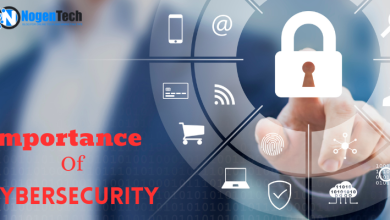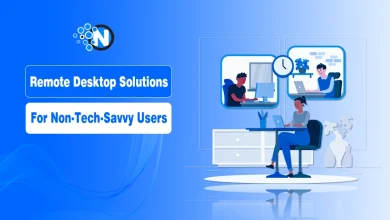Proxy vs VPN: Understanding the Key Differences

The digital world is expanding at a very fast pace, making it challenging for everyone to go with the same trend. While trying such, a large number of people have gone through online privacy and security crises. Thanks to the proxies and VPNs, which are now the main weapon against these threats.
However, the Proxy vs VPN battle is currently storming the Internet as people are willing to know which can be the better pick for them. This blog post will highlight different aspects of both methods to help you learn about their key differences.
What is a Proxy?
The proxy server is a server that exists between a user and an internet resource. It gets a request from a user, passes it to the goal server, and returns the reply to the user. It is able to mask the IP address of the user. Thus, it will make clients a bit anonymous and can create more security. A proxy also helps you in the following ways.
- Bypassing Blocks: You can access prohibited or restricted websites.
- Anonymity: With a proxy, the resource cannot see your real IP address. It will only see the proxy’s IP, and the proxy will route the data to your local line.

Types of Proxies
The following are the different types of proxies.
Datacenter Proxies
Top quality proxies with fully static IP addresses from our powerful server farms guarantee stability and reliability. Proxywing DC proxies are the fastest and most powerful proxies on the market today!
Residential Proxies
Traffic-Based: The IP addresses given by Internet Service Providers to actual users. This makes them as stable and realistic as possible, which is very important for sites that verify the authenticity of the traffic. The most significant advantage is paying only for the traffic used, as opposed to the time the traffic is used. IP addresses change according to the parameters set.
ISP Proxy paid-for and owned for a certain period. They feature the qualities of the residential and data center proxies. Supply by internet service providers, being fast and reliable like DC proxy. While retaining the anonymity of the residential ones.
What is a VPN?
VPN, which stands for Virtual Private Network, functions much like a proxy server, except that the user request is first sent to the server. From here, it goes through the end-to-end encryption procedure and is then sent to the network. This makes it a very secure and private way to bypass geolocation restrictions. Using a VPN involves installing an application on your device or a browser extension like VPN Chrome extensions. The key benefits are:
- Data Protection: All data undergoes encryption.
- Anonymity: The internet resource you access sees only the server’s IP address.
- Access: You can associate with a server in a different country, bypassing geo-regional limitations.

Attention! Don’t use the benefits of free VPNs! They’ve repeatedly been caught spying on their users and selling their data. Also, the installation of applications may grant them access to your system. The free service Hola sold its users’ IP addresses to crawlers who could use them to perform illegal actions.
Key Differences Between Proxy and VPN
Let’s compare proxies and VPNs based on key parameters:
- Change of Geolocation: You can change your geolocation. Both proxies and VPNs let a user bend restrictions by circumnavigating blocks, redirecting a user’s traffic through another route.
- Security: With private proxies, you are the only user of the IP address which increases security and greatly reduces the possibility of blocking due to an IP address change.
- Anonymity: VPN can help you stay anonymous online by encrypting your data which makes it more secure than proxies. Additionally, your IP address is used by multiple users, which depersonalises the data. Web resources do register that a user is using a VPN.
- Bandwidth: Proxy servers provide higher speeds, they don’t need encryption, and connecting to a VPN uses resources. The limit of resources a VPN provider gives to one user also depends on the number of users connected to the server. You should be biased towards the top VPNs only for enhanced benefits.
Compatibility and Use Cases
Proxy Server: They are typically configured at the application or browser level. Good for overcoming geoblocking, accessing banned sites, and traffic control in corporate networks.
VPN: It works at the system level and redirects all your traffic through a VPN server. This is great for protecting yourself when using public Wi-Fi networks, accessing geo-restricted content, and securing your online privacy. You only have to learn the basis of how to use a VPN to pocket all these advantages.
Pros and Cons of Proxy
| Pros | Cons |
| The absence of encryption allows proxy servers to provide higher internet connection speeds. | Data is transmitted without encryption making it vulnerable to interception and reducing privacy. |
| Easy to configure at the browser or individual application level. | Free proxies may be unstable, slow, or even malicious. |
| Enables access to geographically restricted content and blocked websites. | |
| Using residential proxies is indistinguishable from real users. |
Pros and Cons of VPN
| Pros | Cons |
| Encrypts all internet traffic, protecting data from interception. | The encryption process and additional routing can reduce the speed of the Internet connection. |
| Provides data protection when using public Wi-Fi networks, preventing possible attacks. | Reliable and high-quality VPN services are usually paid for and cost more than proxy servers. |
| Allows bypassing regional blocks and accessing content unavailable in your country. | The VPN provider sees your traffic streams and can probably sell them to make money. |
| Operates at the operating system level, redirecting and protecting all outgoing and incoming traffic. |
Which One Should You Choose?
It is important to consider which path to take, a proxy server or a VPN. Keeping in mind your budget, priorities, and specific needs. Proxy servers help in that they can provide you with a different static IP number for each application or browser. This is useful for managing multiple accounts to avoid being blocked by social networks.
VPNs hide your traffic from view and securely deliver the content you need, all while protecting your privacy. They also help you get past geoblocks. Always observe local laws and terms of service. Using proxy servers or VPNs to bypass restrictions or rules may be illegal or violate terms of service.
Final Thoughts
The ultimate decider of the Proxy vs VPN is you only as it varies with your tasks and priorities. If you have jobs where you need many unique IP addresses and security is an important factor, then proxy servers might be your choice. On the other hand, if you prefer anonymity and your whole internet traffic needs to be protected, you should go with a VPN.




